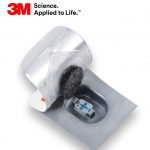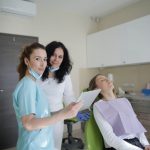Now that most dental practices are open again in some capacity, adaptation is the order of the day. Businesses have been re-organised and re-structured in order to cater for the new way of doing things.
With the situation continually changing and evolving, even the challenges faced during the first few weeks of re-opening will remain a consideration for months. Renowned dental business consultant and coach, Chris Barrow, describes this as the ‘puzzle’ that has become dental practice management today.
“Both clinical and commercial assessments have been and continue to be made as practices gradually resume routine services,” he says. “The pieces of the puzzle are as follows:
- How to split clinicians between surgeries in order to maximise appointment efficiency while protecting staff and patient safety.
- How to split focus on AGP and non-AGP appointments.
- Which clinicians should be brought back, in what order and when.
- Which team members are needed to support the clinical team.
- Whether patients are coming back and what types of treatments they require.
- If the team members are willing and able to come back to work – team leaders have a responsibility to be compassionate, so genuine concerns or barriers should be addressed and catered for wherever possible.
“The puzzle is idiosyncratic for each practice, with all businesses needing to find their own unique solutions. That said, much can be gained by being part of a community of professionals and sharing experiences with others. Everyone can all learn from solutions that worked for other, even if they need to be adapted in some way.
“It is also important to note that once you’ve found pieces that seem to fit together, these might still change shape as time goes on. Practices that have remained flexible and responsive to even the smallest nuisances are the strongest right now.”
The above is only possible with constant and open communication between team members. In fact, this is something that Chris believes is a must-have for all dental practices as they navigate the continued maze of recovery.
“It’s essential that everyone within the practice talks daily,” he says. “Gone are the days where the dentist only really speaks to their dental nurse and their patients. Team huddles are still critical to ensure that everyone knows what’s going on and how they should be adapting to the latest changes implemented.
“In addition, communication with patients must continue. While I wouldn’t advise external marketing sources for most practices, engaging with existing patients through social media, newsletters, blogs and podcasts, for example, should be business as usual. It might even be more important with practices seeing fewer patients each day and providing fewer dental procedures. Asking patients for testimonials and online reviews can also be hugely beneficial.”
Even for those practices still operating with a reduced staff, it is important that tasks such as communications are delegated. Chris continues:
“The reality is that Principals can’t do it all as they start to see more patients and provide more treatment. Treatment co-ordinators, marketing managers or practice managers should share the responsibility of internal marketing and team communications. In some cases, this might require flexible furloughing so that individuals can initially come back to work on a part-time basis. There is even an opportunity for some of this work to be completed at home, so logistics don’t become a bigger problem with more people coming into the practice.”
Given the anguish and uncertainly caused by events of 2020 so far, Chris summarises the two messages he believes the dental profession should take away:
“Firstly, the benefits of being debt-free and having three months of running expenses in the reserves at all times have become crystal clear. Notwithstanding the financial support some practices have had access to through the Government, NHS England and/or loan repayment deferrals, those with no fat on the bone faced the most stressful 2020. It has been a real wake up call for many and I think priorities will change to allow for greater financial security in the future.
“Secondly, I think the importance of being kind to other people and doing the right thing has come to the fore. It might seem cheesy, but it’s the truth. Those who supported others during lockdown, sometimes at their own expense, have emerged heroes. Their acts of kindness will be remembered. I predict a shift in the market once things settle down as practices and individuals move away from those who were less kind in difficult times towards those who really supported them.”
The road to recovery in the dental profession may be gradual, but the path is laid out. By keeping up communications and remaining flexible to the situation as it evolves, practices will position themselves well for the future, whatever that brings.
The next British Dental Conference and Dentistry Show will be held on Friday 21st and Saturday 22nd May 2021, Birmingham NEC, co-located with DTS.
For more information, visit www.thedentistryshow.co.uk, call 020 7348 5270 or email dentistry@closerstillmedia.com









